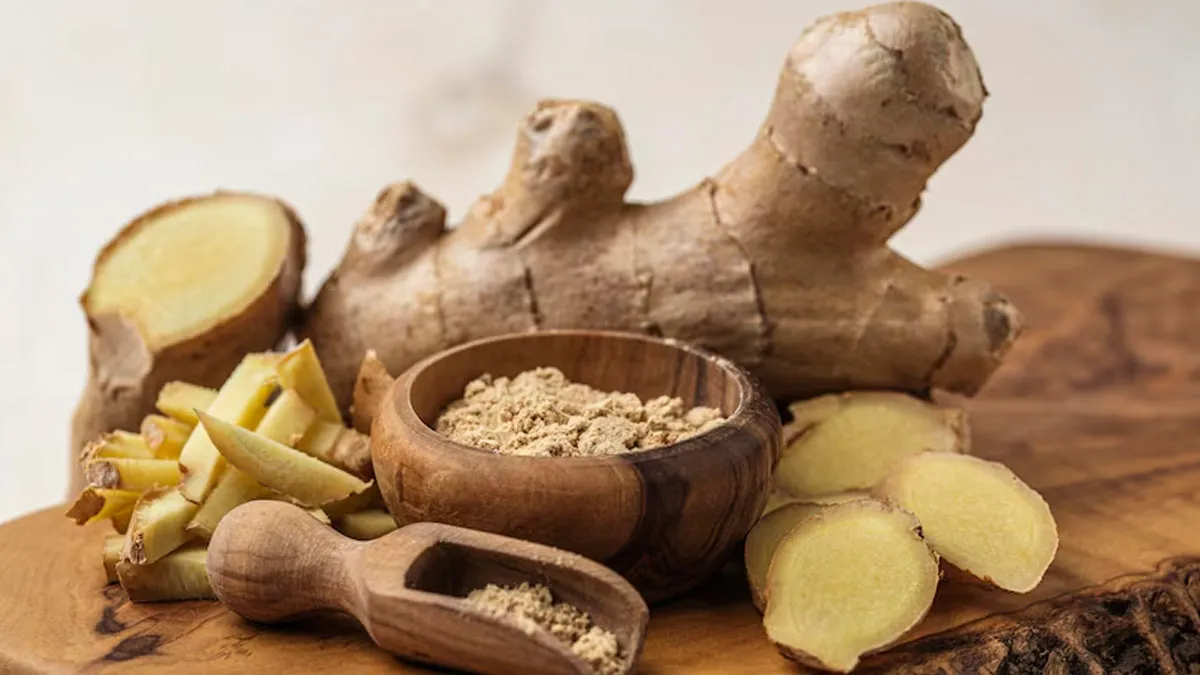
Winter brings a chill in the air, shorter days, and a longing for warm comfort. Amidst the seasonal shift, our bodies demand extra care to fend off colds, boost immunity, and maintain overall well-being. Ginger, a staple in traditional medicine and culinary practices, emerges as a winter wonder for its warming properties and numerous health benefits. Here's why you should embrace ginger this winter and how to make the most of this potent root.
Table of Content:-
Why Ginger is a Winter Superfood
1. Natural Immune Booster
Ginger is packed with bioactive compounds like gingerol, which have potent anti-inflammatory and antioxidant properties. Studies have shown that ginger helps in enhancing the immune system, making it an excellent ally against common winter ailments like colds and flu.
A study published in the International Journal of Preventive Medicine found that ginger extract significantly boosts the body’s defence mechanisms by modulating immune responses. Its ability to inhibit the growth of certain bacteria and viruses further supports its role in combating winter infections.
2. Relief from Cold and Congestion

One of the most well-known benefits of ginger is its ability to alleviate cold and respiratory discomfort. Ginger's warming nature helps in loosening mucus, clearing nasal passages, and soothing sore throats.
A 2013 study in The Journal of Ethnopharmacology confirmed ginger's efficacy in reducing symptoms of respiratory infections, making it a go-to remedy for congestion and persistent cough during the colder months.
Also read: Best Home Remedies To Beat The Winter Bug, From Chicken Soup To Hot Toddy
3. Improves Circulation and Provides Warmth
Ginger has thermogenic properties, meaning it naturally generates heat in the body. This makes it ideal for winter, as it improves blood circulation and warms up the body from within. Regular consumption of ginger can help in keeping extremities like hands and feet warm, especially for those prone to cold intolerance.
4. Supports Digestive Health

Winters often come with heavy and rich meals that can strain digestion. Ginger aids digestion by stimulating gastric enzymes and preventing bloating, indigestion, and nausea. By keeping your digestive system on track, it ensures you enjoy hearty meals without discomfort.
Ways to Consume Ginger in Winter
There are countless ways to incorporate ginger into your diet. Here are some effective and enjoyable methods:
1. Ginger Tea

A steaming cup of ginger tea is a winter favourite. Boil fresh ginger slices in water, add a dash of lemon and honey, and enjoy. This soothing drink not only warms you up but also helps in relieving cold symptoms.
Also read: Warming Relief: The Winter Wonder of Ginger Tea for Sore Throats
2. Golden Milk with Ginger
Combine the anti-inflammatory power of turmeric with ginger in a cup of warm milk. This “golden milk” is a powerhouse of nutrients and is perfect for strengthening immunity while providing warmth on chilly evenings.
3. Ginger in Soups and Curries

Grated or finely chopped ginger adds a zesty flavour to soups and curries while enhancing their health benefits. Try adding ginger to chicken soup or lentil stews for a hearty and health-boosting meal.
4. Candied Ginger
If you’re looking for a snack, candied ginger is a delightful option. It’s not only tasty but also helps in keeping your digestive system balanced.
5. Ginger Infused Water
Prepare ginger-infused water by boiling ginger slices and sipping it throughout the day. This keeps you hydrated, aids digestion, and provides a gentle warmth.
Scientific Insights into Ginger’s Benefits
Beyond traditional remedies, modern science continues to validate ginger's myriad health benefits:
- Immune Support: A study in BMC Complementary Medicine and Therapies highlighted ginger’s role in increasing natural killer cells, crucial for immune defence.
- Anti-inflammatory Effects: Research in Food & Function found that gingerol and shogaol, compounds in ginger, reduce inflammation, making ginger beneficial for joint pain exacerbated by cold weather.
Precautions While Consuming Ginger
Although ginger is generally safe, excessive consumption may lead to heartburn or upset stomach in some individuals. Pregnant women and those on blood-thinning medications should consult a healthcare professional before incorporating large amounts of ginger into their diet.
Conclusion
Ginger is a natural winter superfood that offers warmth, bolsters immunity, and aids digestion. Its versatility makes it easy to include in your daily routine, whether as a tea, in meals, or as a snack. As the winter chill sets in, let ginger be your ally for staying healthy and energised. By blending the wisdom of traditional practices with scientific backing, this humble root proves to be a timeless remedy for winter wellness.
Also watch this video
How we keep this article up to date:
We work with experts and keep a close eye on the latest in health and wellness. Whenever there is a new research or helpful information, we update our articles with accurate and useful advice.
Current Version